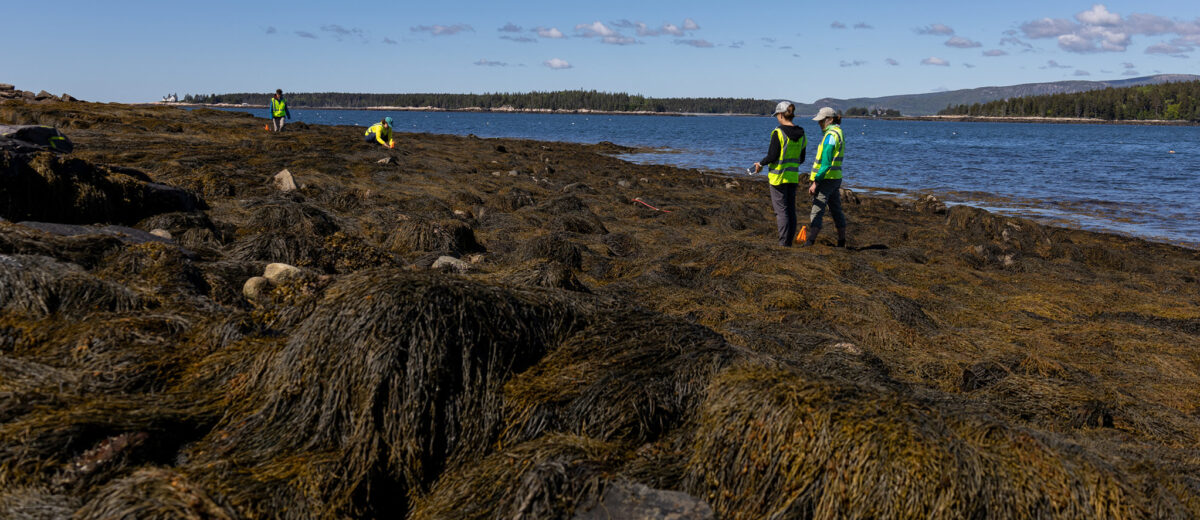Intertidal Ecology Research at Schoodic Institute
Along Acadia National Park’s 40 miles of shoreline, the effects of global changes are visible, as when rising sea levels and storms reshape the coast. But other changes are harder to see: warming temperatures and changing ocean chemistry are altering the food web that supports everything from periwinkles and rockweed to lobster and whales. Making sense of these changes will help those who depend on marine resources for their livelihood respond and adapt, while also providing information for those trying to manage protected coastal areas.
The Marine Ecology Program studies patterns of life at the edge between land and sea, and global changes in air and water temperature, ocean chemistry, ocean currents, and storms.
For more information, contact Hannah Webber, Marine Ecology Program Director, hwebber@schoodicinstitute.org
